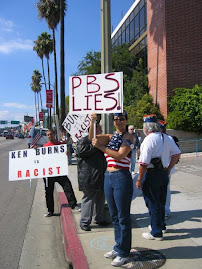As a nescient logophile and non-accustomed reader (but open to the idea) as a young Chicano, I was intrigued by the 1980s tv sitcom ALF (Alien Life Form) and listening to the respective commentary and play-by-play of sports announcers Howard Cosell, in his oft glum mien, and Dick Vitale with his hyper bombast. These three expressed themselves with an erudition that fascinated me. For example, I remember in one episode the snarky Alf debated Willy, the always haggard head of the household, with the riposte, "Willy, let's not embark on syllogisms….” “Syllogisms? What does that mean?” I thought. So, after the show I arose from laying on the living room chase, that was the floor, to search the tattered, coverless, dictionary in my parents’ Levittown-era house, probably bought at a secunda for $1 or left behind as we moved in the late 1960s (that I still have, btw. See pic), to learn its definition as I have repeatedly since then because my brain just doesn’t encode the meaning of certain words—another is the awkward “a priori.”
While I intensely studied Carey McWilliams’ North From Mexico: The Spanish-Speaking People of the United States (1948) as part of my course prep as an assistant professor at Cypress College in the early 1990s, words like “filigree,” “garroted,” “tatterdemalion,” “ultramontane,” and others, in a numinous way, made me self-conscious of my scholastic illiteracy. This, along with my interaction with academics and managers, I regularly listened to lectures and speeches embedded with words I did not know the meaning of. My lexiconic shortcomings made this working-class, ethnic Mexican person uneasy. To the point of having a complex.
But I worked on this imposter syndrome. Before the age of mobile phones, I memorized arcane words at commencement and convocation-like ceremonies to define when I returned to my study. In one instance, my boss, CI President Richard Rush, now retired, tied in the word “euphonious” into one of his campus addresses. As a Jesuit-trained scholar, he regularly integrated such words into his syncopated Catholic-Mass-inflected disquisitions. In this instance, his wife Jane shunted him aside to brashly take over the mic to say in her ethnic, northeast borough insouciance, “‘Euphonious’ means it sounds nice!” Thanks, Jane, and R.I.P.
Now to further improve my command of language, I am a subscriber to The New Yorker. But television continues to inspire me. The latest being Schitt’s Creek. For each episode, I sat ready to press the pause button of the remote to define Moira Rose’s melodramatic introduction of words like “callipygian,” “epistle inamorata,” and “nocturnal enuresis.”
Well, that’s the end of my laconic reverie on how I became a word buff. My next dispatch will account how I came up with the titles of my two books: Curious Unions: Mexican American Workers and Resistance in Oxnard, California, 1898-1961 and Mexican Americans with Moxie: A Transgenerational History of El Movimiento Chicano in Ventura County, California, 1945-1975.
C/S
fpb



No comments:
Post a Comment